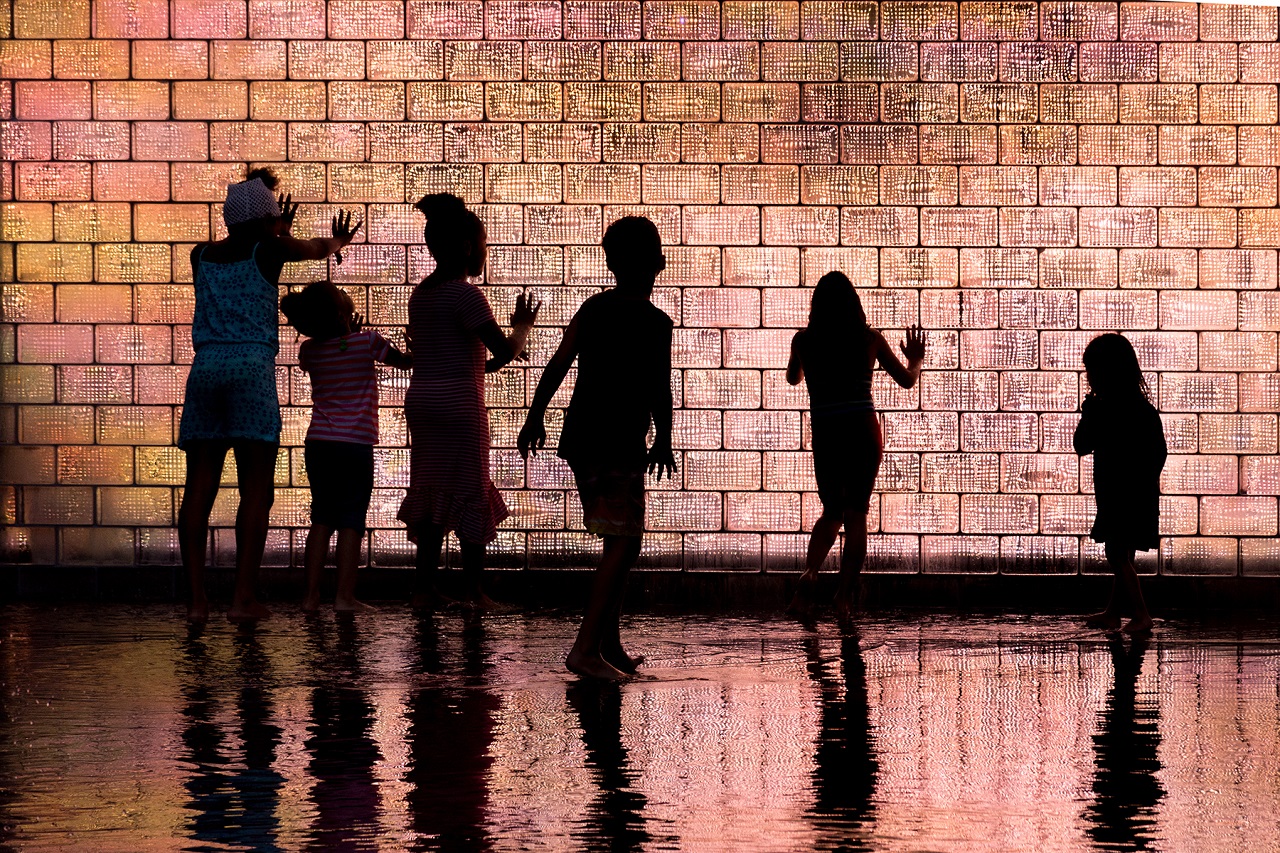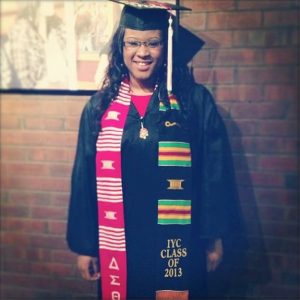La Rabida Children’s Hospital is a specialty hospital on the south side of Chicago.
It isn’t like a regular hospital where patients arrive and leave within a few days. The children at La Rabida are in a middle ground. They aren’t sick enough to be treated in acute care, but they aren’t well enough to go home either. La Rabida offers long-term care to children with chronic conditions and disabilities.
This is where Illinois State University alumna Lauren Bradley works.
“We have patients who have ventilators, and we have to make sure that the parents know what to do if the alarm starts going off. There’s a lot of teaching that goes into it,” Lauren says. “We get some kids whose parents never show up. As nurses, we not only have to be the ones who are taking care of them physically, but we also have to nurture them and show them that we care and that we love them.”
Building on past experience
Luckily for Lauren, her upbringing prepared her for the added stress of being a nurturer.
“I was raised in a single parent household, and my mom is my rock,” Lauren explains. “She put me through private school, and she was very, very focused on making sure that I did well academically. That’s part of the reason why I ended up at Mennonite College of Nursing (MCN). I got quite a few scholarships because she stayed on me about my grades. She really pushes me to accomplish all of my goals and dreams.”
Becoming a nurse was one of these goals.
“Of all of my experiences at MCN, I think one of my most memorable was in my psych rotation,” she said. “We had a patient who had bipolar disorder, and I was able to see both the manic and the depressed states. There was such an incredibly strong difference between the two. When I first met the patient, they were manic. They spent the entire time jogging around the nursing unit talking to everyone really, really fast. They were really chipper and wouldn’t stop moving.”
“The next week, we came in, and the patient was in the depressed state. They spent the day in the corner, withdrawn, and wouldn’t talk to anybody. While I felt terribly sad to see the patient in such a state, the experience allowed me to see what bipolar disorder really looks like. It was eye-opening.”
Working her dream job isn’t easy
It took Lauren some time to get settled post-graduation.
“I really enjoyed my first job, but what I did wasn’t fulfilling to me,” she said. “When I transitioned to pediatric nursing at La Rabida, I knew I had discovered my niche.”
While Lauren has found a fulfilling profession, she admits that it isn’t easy.
“Treating sick children can be emotionally taxing,” she said. “At the end of the day, though, my job is to make sure that the kids are okay, and that’s always my stance on it. If I feel like it’s getting to me, I’ll step off the floor and have a moment, and then come right back upstairs and get to work.”
You can hear the quiet, firm resolve in her voice as she speaks.
“My main concern is those kids, and I don’t let how the situation is making me feel affect that,” she said. “It doesn’t matter if I’m tired, or I have things going on in my personal life. Once I get to work, I’m like ‘This is exactly why I’m doing what I’m doing.’”
Educating nurses in pediatrics through innovation
Treating sick children isn’t just emotionally taxing, it’s all-around difficult. Long gone are the days where nurses just administered meds and took vitals. Nursing is shifting to take a more holistic view of the job, which MCN has happily embraced.
MCN’s America’s Promise Schools Project was created in response to the shortage of pediatric clinical opportunities available to nursing students. The program places traditional and accelerated BSN students in public schools so that they can get first-hand experience in pediatric and public health. In addition, the program educates students about challenges that children and families with chronic health conditions face in the healthcare system.
America’s Promise clinical experience has been so effective that in 2017 it received an Award for Innovation in Nursing Education from the American Association of Colleges of Nursing.
A life-long learner
Outside of work, Lauren is also working to advance her education by earning her DNP-FNP. Ultimately, she is hoping to use the degree to help her accomplish another one of her goals.
“Once I graduate with my DNP, I want to become a family nurse practitioner,” she said. “I’m a firm believer that everybody deserves healthcare, regardless of their ability or inability to pay. So, once I gain some experience, I’d like to open my own clinic in a less fortunate area that extends healthcare to people who otherwise wouldn’t have access to it.”
Lauren says that her experiences in the hospital setting are what made her want to open her own clinic.
“I’ve seen people who have gone months and months without healthcare and when they come in, they’re in such a terrible condition. We ask them ‘Why didn’t you come to the doctor’s sooner?’ And they always say, ‘I didn’t think that I’d be able to pay for it. I don’t have any health insurance.’ Hearing that just breaks my heart.”
Lauren pauses, taking a long, slow breath. Then she continues, resolutely.
“Not having insurance shouldn’t hinder people from getting quality healthcare.”
MCN is providing leadership in nursing—Learn more.
Our undergraduate programs
Our graduate programs
- Family Nurse Practitioner
- Online Nursing Systems Administration
- Ph.D. in Nursing
- Online Doctor of Nursing Practice



